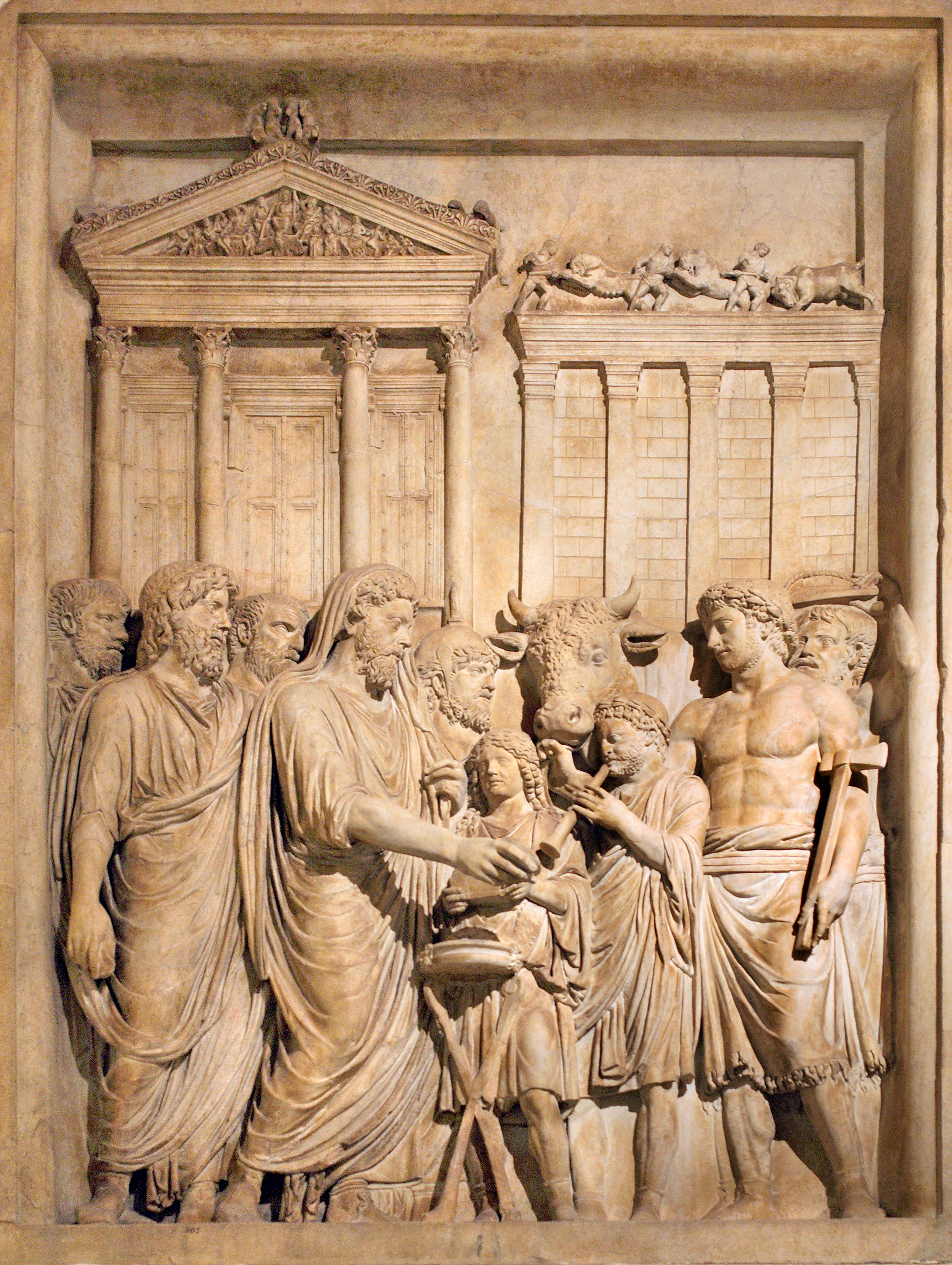
Religion in ancient Rome
Religion in ancient Rome consisted of varying imperial and provincial religious practices, which were followed both by the people of Rome as well as those who were brought under its rule.
"Roman Empire religion" redirects here. For the later Christian church, see Christianity as the Roman state religion.
The Romans thought of themselves as highly religious, and attributed their success as a world power to their collective piety (pietas) in maintaining good relations with the gods. Their polytheistic religion is known for having honored many deities.
The presence of Greeks on the Italian peninsula from the beginning of the historical period influenced Roman culture, introducing some religious practices that became fundamental, such as the cultus of Apollo. The Romans looked for common ground between their major gods and those of the Greeks (interpretatio graeca), adapting Greek myths and iconography for Latin literature and Roman art, as the Etruscans had. Etruscan religion was also a major influence, particularly on the practice of augury, used by the state to seek the will of the gods. According to legends, most of Rome's religious institutions could be traced to its founders, particularly Numa Pompilius, the Sabine second king of Rome, who negotiated directly with the gods. This archaic religion was the foundation of the mos maiorum, "the way of the ancestors" or simply "tradition", viewed as central to Roman identity.
Roman religion was practical and contractual, based on the principle of do ut des, "I give that you might give". Religion depended on knowledge and the correct practice of prayer, rite, and sacrifice, not on faith or dogma, although Latin literature preserves learned speculation on the nature of the divine and its relation to human affairs. Even the most skeptical among Rome's intellectual elite such as Cicero, who was an augur, saw religion as a source of social order. As the Roman Empire expanded, migrants to the capital brought their local cults, many of which became popular among Italians. Christianity was eventually the most successful of these beliefs, and in 380 became the official state religion.
For ordinary Romans, religion was a part of daily life.[1] Each home had a household shrine at which prayers and libations to the family's domestic deities were offered. Neighborhood shrines and sacred places such as springs and groves dotted the city.[2] The Roman calendar was structured around religious observances. Women, slaves, and children all participated in a range of religious activities. Some public rituals could be conducted only by women, and women formed what is perhaps Rome's most famous priesthood, the state-supported Vestals, who tended Rome's sacred hearth for centuries, until disbanded under Christian domination.
Religious practice[edit]
Prayers, vows, and oaths[edit]
All sacrifices and offerings required an accompanying prayer to be effective. Pliny the Elder declared that "a sacrifice without prayer is thought to be useless and not a proper consultation of the gods."[34] Prayer by itself, however, had independent power. The spoken word was thus the single most potent religious action, and knowledge of the correct verbal formulas the key to efficacy.[35] Accurate naming was vital for tapping into the desired powers of the deity invoked, hence the proliferation of cult epithets among Roman deities.[36] Public prayers (prex) were offered loudly and clearly by a priest on behalf of the community. Public religious ritual had to be enacted by specialists and professionals faultlessly; a mistake might require that the action, or even the entire festival, be repeated from the start.[37] The historian Livy reports an occasion when the presiding magistrate at the Latin festival forgot to include the "Roman people" among the list of beneficiaries in his prayer; the festival had to be started over.[38] Even private prayer by an individual was formulaic, a recitation rather than a personal expression, though selected by the individual for a particular purpose or occasion.[39]
Oaths—sworn for the purposes of business, clientage and service, patronage and protection, state office, treaty and loyalty—appealed to the witness and sanction of deities. Refusal to swear a lawful oath (sacramentum) and breaking a sworn oath carried much the same penalty: both repudiated the fundamental bonds between the human and divine.[36] A votum or vow was a promise made to a deity, usually an offer of sacrifices or a votive offering in exchange for benefits received.